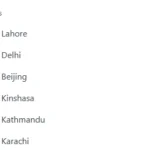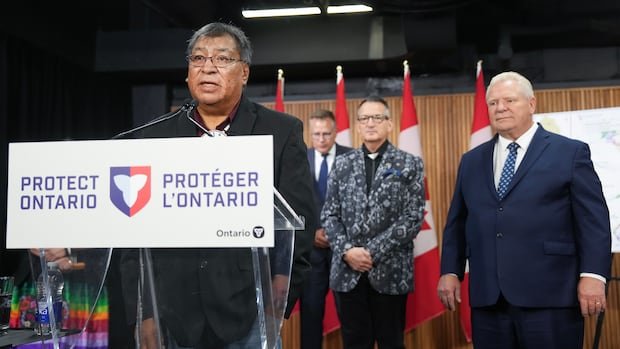The fallout continues in Quebec after the Coalition Avenir Québec (CAQ) government invoked the shutdown to force the passage of a controversial bill that changes the way doctors are compensated.
Bill 2 became law on Saturday, less than 24 hours after it was presented by Health Minister Christian Dubé.
According to the legislation, Doctors will see a portion of their compensation tied to performance goals related to the number of patients they care for, particularly vulnerable ones.
Both New Brunswick and Ontario appear poised to benefit, as more doctors say they will leave Quebec’s public health system in response to the special law.
Ontario Premier Doug Ford was quick to jump in, telling reporters in Toronto when asked Wednesday that he would love to increase recruiting efforts in Quebec.
“Call 1-800-Doug-Ford,” he said. “All the doctors, come, call me on my cell phone… we will have you working very quickly.”
“This is not the time to shoot each other,” says Legault
Later Wednesday, Quebec Premier François Legault called Ford’s comments unacceptable and criticized him for a “total lack of judgment.”
“It’s not time to shoot each other. It’s time to work together,” said Legault, who insisted that the health care budget is not shrinking, but that the way it is spent needs to be adjusted.
“I understand the concern. It’s a big change,” he said.
Either way, if the number of license applicants is any indication, it doesn’t look like Ford has much convincing to do.
As of Wednesday, more than 100 doctors had begun the process of applying for licenses to practice in both provinces, with the New Brunswick medical association saying it had received about 40 applications so far in October and Ontario saying it had received 70 applications in the past five days.
In an email to Radio-Canada, the College of Physicians and Surgeons of New Brunswick said it typically receives between three and four license applications per month from Quebec doctors, showing a significant increase.
Quebec’s Bill 2 ties a portion of doctors’ compensation to collective performance targets, a measure that many doctors say will not have the desired effect. They also criticize elements of the bill that could punish those who speak out or attempt to leave the province’s public system.
Meanwhile, a New Brunswick health authority Vitalité, which oversees 11 French hospitals in the province, says it is also seeing a “wave” of consultations from Quebec doctors.
Vitalité CEO France Desrosiers told Radio-Canada quite a matin that in the last month alone it had received 100 expressions of interest from Quebec doctors, including those asking what positions were vacant and where, as well as obtaining information on workload and working conditions.
“It’s significantly higher than what we normally receive, even though Quebec is our main recruiting target, aside from our New Brunswick-trained students,” Desrosiers said, adding that Vitalité typically receives between 10 and 20 applications per year from doctors across the country.
Derosiers said that while there are opportunities for family doctors and specialists from Quebec, it is not a large number, with a total of 500 doctors in New Brunswick working in French.
“So when we hire, it’s about 50 doctors and we lose 15 to 20 a year due to retirement or going to work somewhere else.”
“A tragedy for patients,” says the Quebec federation of family doctors
Dr. Marc-André Amyot, president of the Federation of omnipractic doctors of Quebec (FMOQ), which represents general practitioners, He described the situation as a “tragedy.”
“For a doctor to leave, whether due to retirement or to another province, is a tragedy for patients,” he said.
“On average, each doctor has 1,000 patients. And imagine, those patients will not find another family doctor. There is already a shortage of 2,000 family doctors in Quebec.”
Speaking from Quebec City on Wednesday, Health Minister Christian Dubé said doctors and students must take a step back.
“They need to have more information before they make a decision,” he said, adding that the law was just passed Saturday and there is a lot to process.
Dubé also reminded the FMOQ and the federation of specialist doctors of a delay of 60 days after the approval of the law to be able to “negotiate remuneration.”
“So I think there will be some movement over the next few weeks if the federations are at the table,” he said.
However, on Tuesday, the federation representing medical specialists in Quebec said it would file a lawsuit on Wednesday to challenge the law. He Quebec Federation of Specialized Physicians (FMSQ) will also request a stay of execution, adding that the “violation of individual freedoms” will be at the center of its arguments.








